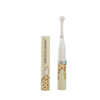3 Female Reproductive Health Issues We Should Know About
In the past, chatting about issues involving female reproductive health has seemed almost taboo. Although we have many of these conversations in private with our good friends, there’s been a distinct lack of clear information in the public sphere. So much so, that for some of us - what goes on “down there” remains a bit of a mystery.
We don’t all know exactly how our bodies work, and that’s ok - we don’t have time to study biology in our spare time and it’s been a long time since school science class. But with March having been both Endometriosis and Ovarian Cancer Awareness Month - I thought this would be the perfect time to talk about three of the issues concerning female reproductive health.
Cervical screening - what should we know?
It’s been a news topic recently that women are missing smear tests in higher numbers than ever? About 72% of women aged 25 to 64 have had a smear test within the period recommended for their age, according to figures compiled in March 2017. This is down from 75.4% in 2012. But why?
Early detection of mutated cells or early stages of cancer means that there’s a far better chance of being cured. Medicine has advanced in the last 10 years, yet we’re not making the most of it.
Is it because our lives are just too busy, or are we becoming more squeamish about our bodies? Are we too shy to allow a doctor or gynaecologist perform the routine examinations they perform every day? Are we embarrassed about our vaginas? Sadly, according to a survey performed by Jo’s Cervical Cancer Trust, we are.
Speak to your doctor, nurse or health professional
Doctors, nurses, gynaecologists and medical professionals spend many years training. They have seen more bodies and more parts of the human body than we could imagine. A screening often lasts just a few minutes, much less time than a dentist or optician appointment.
If you feel embarrassed, why not phone your doctor's surgery and request to speak with your doctor about it? They will be able to answer any questions you have and put you at ease. Don’t miss an appointment that may end up saving your life.
Ovarian cancer - what should we know?
Every year, 7,300 women in the UK are diagnosed with ovarian cancer. It can be detected with a simple blood test, and the earlier the detection - the better rate for survival and cure.
Some of the symptoms for ovarian cancer can be very similar to digestive issues such as IBS. If you haven’t suffered from digestive issues before, or even if you have but your symptoms feel slightly different, it’s worth getting checked out.
It might feel overwhelming or scary to consider the possibility that symptoms may indicate something serious. But with regular checks, if anything does show up, the likelihood you can be treated and cured is much higher. Also, not all tumours are cancerous. Borderline and benign (non-cancerous) tumours can cause symptoms but can usually be removed without further complications.
Endometriosis - what should we know?
Endometriosis is a disease that affects 176 million women worldwide. If you don’t suffer from it, it’s likely that you have several women in your life that do. Symptoms can be extremely painful and it’s one of the biggest causes of infertility in women.
Symptoms include bloating and pain in the pelvis and in most cases (but not all the time), the pain and symptoms correspond to the menstrual cycle. This is one of the reasons it can be mistaken for regular period pain. Particularly bad symptoms or pain that makes it difficult to go about your day should be checked out by a doctor.
Although there is no known cure for Endometriosis, there are treatment options which in some cases can help to significantly reduce the symptoms.
Although our lives are busy, we should all find the time to look after ourselves. The workings of the female reproductive system may not be visible on the outside, but that doesn’t make them any less important when it comes to our health. And, we shouldn’t be embarrassed of our wonderful, natural, functioning female bodies.





























